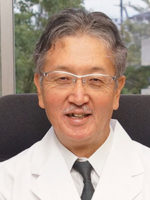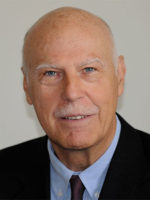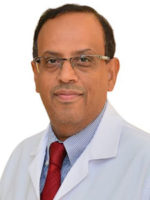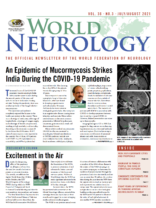 Ryuji Kaji
Ryuji Kaji
For the cause of World Federation of Neurology (WFN) in this challenging time, it has been my privilege and pleasure to serve as the first vice president of the WFN during an unprecedented time of worldwide crisis caused by the pandemic, which has altered the way we conduct the business as the new normal. We are at a turning point in modernizing the structure and function of the federation to meet the new demands. I am proud to be nominated as a candidate for the office of president at this important juncture.
As a graduate from Kyoto University in 1979, I started my professional career as a neurologist studying in the U.S. as a clinical fellow at the University of Pennsylvania. After returning to Japan with my mentor, Prof. Jun Kimura, to teach at our alma mater, I first described the use of IVIG to reverse muscle atrophy in multifocal motor neuropathy, an ALS-like disease.
Encountering a patient with task-specific dystonia, while doing EMG, I became interested in movement disorders, and our group has found new genes causing dystonia. In 2000, I was elected as a member-at-large for the International Federation of Clinical Neurophysiology (IFCN), which I served until 2006. I organized, with IFCN support, a symposium to develop a guideline for early diagnosis of ALS, now adopted as Awaji criteria (an island of Japan).
From 2006 until 2013, I was elected twice as a trustee of WFN under Prof. Aarli and Prof. Hachinski. First, I chaired the membership committee, successfully soliciting six new member societies. Second, I led Asia Initiative to vitalize Asian Oceanian Association of Neurology (AOAN), which now serves as a model of regional organizations in all continents with the help of Prof. Shakir. In 2017, I was elected as first vice president, and have since assisted Prof. Carroll in organizing the congresses and promoting the education of neurologists globally, a major thrust of WFN objectives.
If elected president, I would like to move forward on several initiatives. We must seek to achieve greater worldwide recognition of our discipline and make the prevention and treatment of neurologic conditions the No. 1 priority of governmental medical policies. Specifically, we should encourage and assist the education of young neurologists in developing countries. In undertaking these goals: I will abide by the basic mission of WFN to “foster quality neurology.”I will review the regional representations of trustees to make all the continents fairly represented with the best use of co-opted positions. I will make the regional liaisons stronger by closer contacts with the presidents and delegates of our member societies.
I have learned from the fellow trustees how to accomplish the best consensus with proper balance of assertion and compromise. I believe that it will take a team effort to successfully run an international organization. It is my sincere hope that together we can achieve our objectives and further improve the value and prestige of WFN. •
 Wolfgang Grisold
Wolfgang Grisold
I would like to apply for the position of the president of the WFN.
Having served as the secretary general of the WFN for the past eight years, I have gathered knowledge on all areas of current and previous activity. I designed and organized several initiatives, and made substantial contributions to WFN’s growth as a globally operating organization. Based on countless conversations with representatives and insights I have gained, I am convinced that my agenda for the presidency meets the needs of the WFN and its membership. My proposed agenda revolves around three key goals.
The first is to intensify the collaboration of all WFN members across countries and regions. Neurological diseases are becoming increasingly prevalent throughout the globe and neurologists are at the forefront to solve the great challenges of our time. As our members bring in distinct strengths and competencies, we can jointly advance the treatment of illnesses and our patients’ well-being. A cornerstone of my presidency will be to strengthen collaboration with WHO, the global neurology network, and scientific societies to successfully advance our initiatives.
My second goal is to increase the impact of the WFN. As per our mission, we strive to enhance high-quality neurology and brain health worldwide. Our focus is to make neurology accessible in all parts of the world and for all patients in need. To this end, I see high-quality education as the backbone as it empowers regions to consolidate, advance and adapt their education and treatment strategies.
Among other activities, I intend to drive the development of training centers and department visits, integrating emerging opportunities of virtual education. I am confident we can increase our impact by training and empowering aspiring neurologists. My plan is to design a global training charter to establish standardized neurology training, and establish fellowship, advocacy, and leadership programs.
My third goal is to ensure coherence and continuity. The WFN has launched several successful initiatives targeting all aspects of brain health. One prominent example is World Brain Day, which has significantly helped raise public awareness about neurological diseases. We are fortunate to launch new initiatives and programs, but can only make a sustainable impact where there is continuity and coherence across projects.
One way to increase coherence and continuity is to smooth transitions between administrations. I envision the immediate past-president and president-elect serving in overlapping periods to ensure an efficient, transparent handover.
Importantly also, I will endeavor to balance the gender distribution in leadership roles and give patients a voice in WFN.
I am applying for the presidency of the WFN because I see many promising opportunities that we can achieve together over the next four years. At the heart of my agenda is the will to “strengthen the strengths” of our organizations and further improve outreach and impact of our programs for neurology and neurological patients.
It would be my sincere pleasure to work with you on these programs in the next four years. •
 Youssef Al-Said
Youssef Al-Said
As the current Saudi Neurology Society President (SNS), it would give me great pleasure and be an honor to represent the World Federation of Neurology (WFN) and therefore am submitting my name as a nominee for the position of president.
As an experienced senior professional in neurology and epilepsy, administrative MBA graduate and the executive director of medical and clinical affairs at one of the leading hospitals in Saudi Arabia, I believe I embody the vision and mission of WFN on a daily basis to raise professional and academic proficiency in neuroscience.
My goal is to always lead with movement to action through results-oriented execution. Using this kind of leadership,neuroscience will reach new heights within the kingdom and see real time results.
Neuroscience is not just my career; it is my passion, and I would like to continue to share my knowledge with those entering in the field and contribute to the development of our youth as well as expand and improve the services throughout the kingdom and worldwide.
This year, 2021, is a year of inspiration as we transform to a new norm. Let’s go forward and try to reach a brighter future.
In closing, it would be a pleasure to be considered as the president so that I may help lead from the front as an action-centered leader for neuroscience.
I look forward to hearing from you. •
